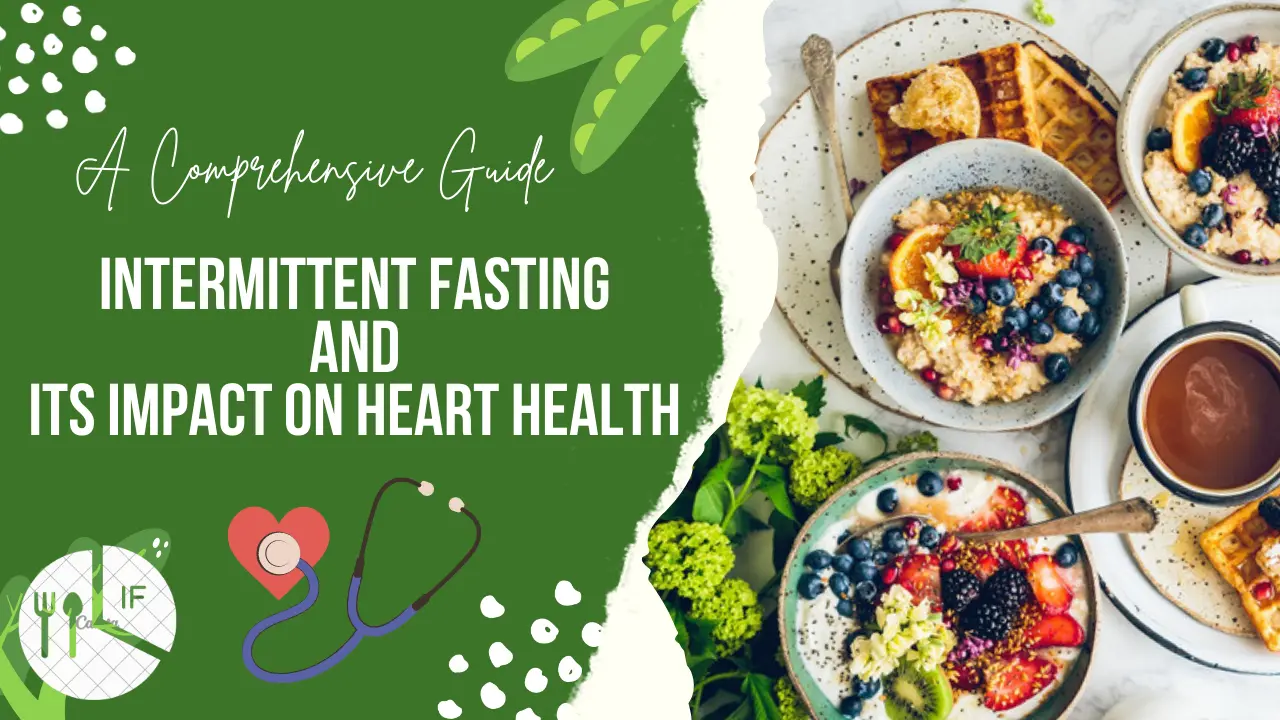Intermittent Fasting and Heart Health
Table of Contents
Intermittent Fasting and Heart Health
Intermittent fasting and heart health – Intermittent fasting, a dietary approach that involves cycling between periods of eating and fasting, has gained significant popularity in recent years due to its potential health benefits. While many individuals adopt this eating pattern for weight loss and improved metabolic health, emerging research suggests that intermittent fasting may also have a positive impact on heart health. In this article, we will delve into the relationship between intermittent fasting and heart health, exploring the potential benefits, risks, and the latest scientific findings.
Understanding Intermittent Fasting

Intermittent fasting is a dietary approach that involves restricting calorie intake for certain periods, followed by periods of unrestricted eating.
There are several popular intermittent fasting methods, including the 16/8 method, which involves fasting for 16 hours and eating during an 8-hour window, and the 5:2 diet, which involves eating normally for five days of the week and restricting calorie intake to 500-600 calories on the other two days.
The Science Behind Intermittent Fasting and Heart Health
Research suggests that intermittent fasting may have a positive impact on heart health by reducing risk factors such as high blood pressure, high cholesterol, and inflammation.
A study published in the Journal of the American College of Cardiology found that intermittent fasting was associated with a significant reduction in LDL cholesterol, triglycerides, and blood pressure, all of which are key risk factors for heart disease.
Another study published in the journal Nutrients found that intermittent fasting was associated with a reduction in inflammatory markers, which are known to contribute to the development of heart disease.
The study also found that intermittent fasting was associated with an improvement in endothelial function, which is essential for maintaining healthy blood vessels.
Related – Healthy meal options for intermittent fasting
Intermittent fasting and heart health – Potential Risks and Considerations
While intermittent fasting has been shown to have potential benefits for heart health, it is important to note that this dietary approach may not be suitable for everyone.
Individuals with certain medical conditions, such as diabetes, low blood pressure, or a history of disordered eating, should consult with their healthcare provider before starting an intermittent fasting regimen.
Additionally, it is important to maintain a healthy and balanced diet during periods of eating, as the quality of the food consumed is just as important as the timing of meals.
Consuming a diet high in processed foods, added sugars, and unhealthy fats may negate the potential benefits of intermittent fasting for heart health.
what are some common misconceptions about intermittent fasting and heart health?
Some common misconceptions about intermittent fasting and heart health include the belief that intermittent fasting is universally beneficial for heart health.
However, research has shown that restricting eating to an 8-hour window may actually double the risk of death from cardiovascular disease.
Another misconception is that skipping breakfast, a form of intermittent fasting, can increase the risk of heart disease. Additionally, there is a misconception that intermittent fasting always leads to improved blood pressure, blood glucose, and cholesterol levels, when in reality, the long-term effects of time-restricted eating are still unclear.
It’s also important to note that while intermittent fasting may have potential benefits for heart and metabolic health, there are negative side effects associated with it, such as increased feelings of hunger, irritability, worsened mood, and difficulty concentrating.
What are the potential negative side effects of intermittent fasting on heart health?
Intermittent fasting has gained popularity in recent years due to its potential health benefits, including weight loss and improved metabolic health. However, there are also potential negative side effects of intermittent fasting on heart health.
One study presented at the American Heart Association conference in Chicago in 2024 found that people who consumed all their food in an eight-hour window had a 91% higher risk of dying from cardiovascular disease compared to those who ate over a 12- to 16-hour time frame.
This study included over 20,000 adults from the United States, and the researchers accounted for factors such as age, sex, race, education, income, and smoking status. However, they did not establish a causal relationship between this eating pattern and deaths from cardiovascular disease.
Another study published in the Journal of the American College of Cardiology found that intermittent fasting was associated with a significant reduction in LDL cholesterol, triglycerides, and blood pressure, all of which are key risk factors for heart disease.
However, this study also found that intermittent fasting was associated with a reduction in lean muscle mass, which has been associated with a higher risk of cardiovascular death in previous research.
Additionally, intermittent fasting may lead to negative side effects such as increased hunger, headaches, fatigue, and mood issues.
It is important to note that intermittent fasting is not appropriate or safe for everyone, and certain individuals may have a higher chance of developing dangerous side effects if they do intermittent fasting, such as people who are pregnant or nursing, young children and teens, older adults who experience weakness, people with immunodeficiencies, people with a current or past eating disorder, people with dementia, and anyone with a history of traumatic brain injury or post-concussive syndrome.
In summary, while intermittent fasting may offer potential benefits for heart health, it is important to be aware of the potential negative side effects and to consult with a healthcare professional before starting an intermittent fasting regimen.
It is also important to maintain a healthy and balanced diet during periods of eating, as the quality of the food consumed is just as important as the timing of meals.
What are some ways to mitigate the negative side effects of intermittent fasting on heart health?
To mitigate the negative side effects of intermittent fasting on heart health, it is important to approach intermittent fasting with caution and consult with a healthcare professional before starting a new intermittent fasting regimen.
It is also important to maintain a healthy and balanced diet during periods of eating, focusing on whole foods, fruits, vegetables, lean proteins, and healthy fats.
Some potential negative side effects of intermittent fasting on heart health include an increased risk of death from heart disease, reduced lean muscle mass, and increased hunger, headaches, fatigue, and mood issues.
These side effects may be more pronounced in certain populations, such as older adults, people with immunodeficiencies, people with a current or past eating disorder, and people with dementia.
To mitigate these negative side effects, it is important to gradually introduce intermittent fasting into your lifestyle, rather than starting with a long fasting period right away. It is also important to stay hydrated and to listen to your body, taking breaks from intermittent fasting if needed.
Additionally, it is important to maintain a healthy and balanced diet during periods of eating, focusing on nutrient-dense foods that provide sustained energy and support heart health.
If you have a medical condition or are currently taking medications, it is important to discuss the benefits and risks of intermittent fasting with a trusted healthcare professional.
Certain people may be more at risk of adverse side effects related to fasting, so it is important to determine whether intermittent fasting is the safe choice for your specific needs.
In summary, while intermittent fasting may offer potential benefits for heart health, it is important to be aware of the potential negative side effects and to take steps to mitigate these effects.
By approaching intermittent fasting with caution, maintaining a healthy and balanced diet, and consulting with a healthcare professional, you can help ensure that your intermittent fasting regimen supports your overall health and well-being.
A Simple “Rice Method” That Liquifies Fat Every 24 Hours – Watch The Video
Conclusion
Intermittent fasting has emerged as a promising dietary approach for improving heart health, with research suggesting that it may help reduce key risk factors such as high blood pressure, high cholesterol, and inflammation.
However, it is important to approach intermittent fasting with caution and to consult with a healthcare provider before starting a new dietary regimen.
For those who do choose to incorporate intermittent fasting into their lifestyle, it is essential to maintain a healthy and balanced diet during periods of eating, focusing on whole foods, fruits, vegetables, lean proteins, and healthy fats.
By combining intermittent fasting with a healthy diet and lifestyle, individuals may be able to significantly reduce their risk of heart disease and improve their overall health and well-being.




